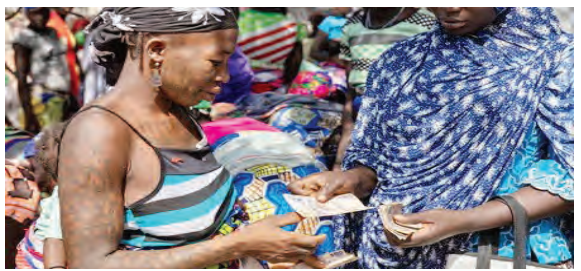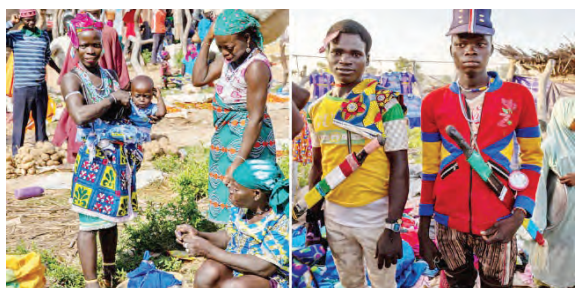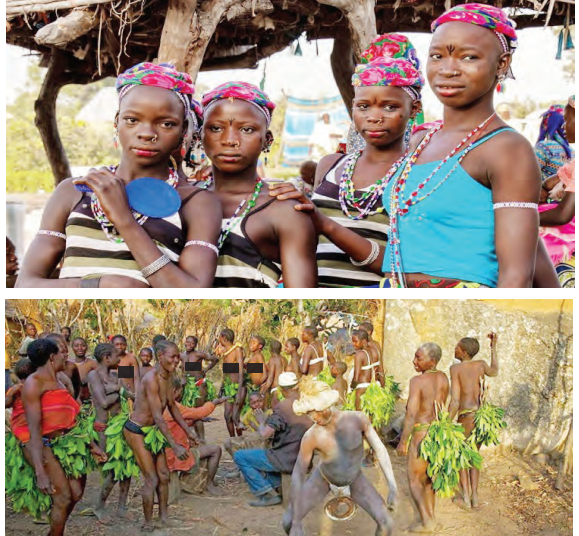The Ashingin or Kambari people are a distinct tribe primarily residing in the Agwara, Magama and Mariga local government areas in Niger State, with some also living in Rijau, Wushishi, and Borgu LGAs. Additionally, they can be found in Ngaski and Yauri LGAs of Kebbi State. Mainly farmers, the Kambaris grow millet, guinea corn, groundnuts, and yams.
This tribe is divided into three dialects: Tsishingini, Tsikimba, and Cishingini, with not all dialects being mutually intelligible.
Many Kambari individuals hold a negative view of modern ways, and there is a disconnect between the traditional authorities and the elite class within the tribe. The authorities blame the elite for a lack of cooperation, while the elite feel that traditional authorities must handle the situation better.
The Kambari tribe originated in present-day Maiduguri, Borno State. Before the arrival of the Fulanis, the Kontagora Province, which the Kambaris and Borgu people inhabited, was marked by frequent wars among communities, slave trading, and a lack of law and order. The predominant religion was idol worship until the introduction of Christianity and Islam.
Although Salka is the ancestral home of the Kambaris, they can also be found in Rijau (Agadi Dialect), Auna, Shagwa, Ibeto, Garafini, and other areas. In Kwara State, the Awunchi dialect is another variation of the Kambari language.

Before civilization, The Kambaris were known for not wearing clothes but only tying leaves around their waist area.
Before Christianity and Islam, the Kambaris were very strong idol worshippers who had two major gods, “Magiro and Azangunu”. When Magiroannounces itself, no woman or visitor can come out, and children can only come out if they are escorted when Magiro is out; even if you can’t see it, Power entices you to start dancing. However, when it comes to Azangunu, all men and women are allowed to participate in the worship.
Though nobody worships idols anymore, the Kambaris play and dance to the drums for entertainment, not worship. The Azangunu dance is celebrated every year by the Kambaris.
Kambari women are known for beautifying their bodies with accessories like nose rings, waist beads, leg anklets, neck beads, etc.
The Kambaris, who can be distinguished in appearance by their unique social features, Can be Pre dominantly  found in north-central states like Nasarawa, Kwara, Kebbi, and Niger state having the highest concentration of the tribe.
found in north-central states like Nasarawa, Kwara, Kebbi, and Niger state having the highest concentration of the tribe.
The Kambaris have three major dances that are held to celebrate significant events. The following are the dances:
THE IGBE: This dance is performed by hunters to celebrate their catches and share the meat among themselves.
THE IKURU: This dance is performed to celebrate happy occasions like marriage, naming, etc till midnight.
THE VIRGIN DANCE: This dance is performed by young maidens (virgins) and young men eligible for marriage. The girls stand side by side to dance, showing their breasts while the men come out to pick the one they want.
Other Kambari dialects are Ashingini, Akimba, Agaunchi, and Mozangu. Because of civilization, most Kambari cultures, values, and traditions are fading out. Now, most Kambari people are civilized and wear clothes.
Generally, the Kambari people are very friendly to strangers in their midst unless they deride their culture and religion. Social amenities like roads, health care is very inadequate in all Kambari land but mainly south of Niger.
Social gatherings like weddings and markets draw huge crowds and many celebrate Islamic festivals. Social vices in the land, like sexual immorality and stealing, are not common.
We’ve got the edge. Get real-time reports, breaking scoops, and exclusive angles delivered straight to your phone. Don’t settle for stale news. Join LEADERSHIP NEWS on WhatsApp for 24/7 updates →
Join Our WhatsApp Channel










